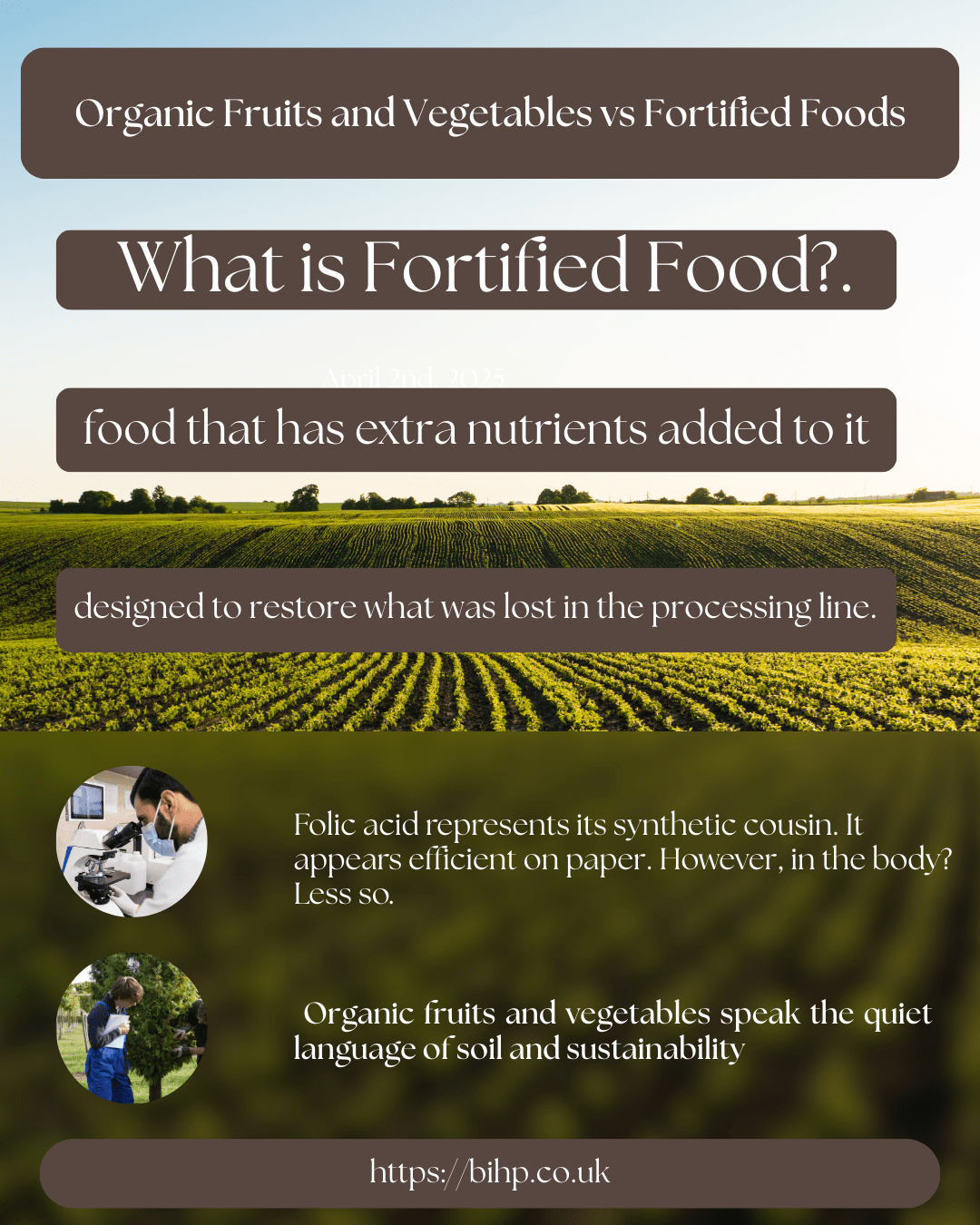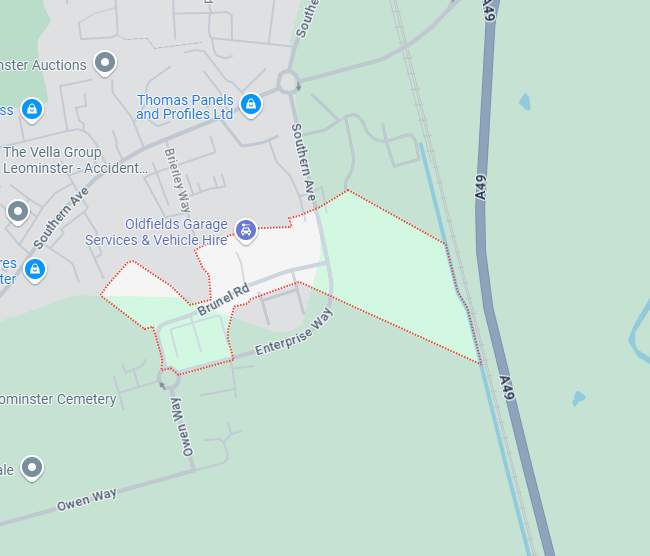
Organic Fruits and Vegetables vs Fortified Foods: Unpacking the Hidden Complexity in Everyday Nutrition
Walk into any supermarket and you’re instantly hit by a wave of well-marketed promises. “High in iron.” “Rich in folic acid.” “Organic.” “Fortified.” Each one competes for trust — and each claims to serve your health. However, behind the polished labels and bold typography lies a more tangled story. One where organic fruits and vegetables speak the quiet language of soil and sustainability, while fortified foods whisper the scripted lines of science-led intervention.
We’re not just choosing what to eat. Instead, we’re choosing philosophies of farming, nourishment, risk, and long-term wellbeing.
Fortified Foods: Engineered Nutrition or Strategic Guesswork?
Fortification didn’t arise from abundance. It was born out of deficiency. As industrial food production scaled, vital nutrients vanished from everyday staples. In response, synthetic replacements stepped in — calculated additions, designed to restore what was lost in the processing line. White flour, breakfast cereals, processed dairy all now carry vitamins and minerals designed to fill the gaps.
Folic acid stands as the most high-profile example. While folate occurs naturally in leafy greens, legumes and citrus fruits, folic acid represents its synthetic cousin. It appears efficient on paper. However, in the body? Less so. It must undergo conversion in the liver to become metabolically active. Unfortunately, that conversion often lags behind especially for individuals with common genetic variations affecting methylation.
When the system stalls, unmetabolized folic acid begins circulating. Most people don’t notice. Nevertheless, scientists have. There’s evidence it can mask vitamin B12 deficiency — a subtle condition with devastating neurological consequences. Other studies suggest it may accelerate tumour growth under certain conditions. Furthermore, the immune system may also become compromised, though findings remain preliminary.
None of this means folic acid is inherently harmful. It saves lives — especially during pregnancy. Yet, its mass distribution through fortified foods adds a layer of complexity most consumers never see.
https://pmc.ncbi.nlm.nih.gov/articles/PMC8235569/
Organic Fruits and Vegetables: Nature’s Quiet Rebellion
Where fortified foods aim to repair what’s broken, organic fruits and vegetables seek to preserve what was never lost. They grow without synthetic fertilisers or genetically modified seeds. Moreover, they rely on crop rotation, natural pest control, and soil health. Organic farming works with nature, not against it — and that mindset permeates every part of the process.
These foods are more than a label. They are the product of ecosystems designed to regenerate rather than deplete. Fewer pesticides. No hormone disruption. Reduced environmental footprint. That’s not hype it’s policy-backed, science-supported agriculture that prioritises long-term health over short-term yield.
Nutrient levels in organic fruits and vegetables can vary, but studies consistently show higher antioxidant concentrations and lower chemical residues. They may not carry flashy nutritional enhancements, but their strength lies in what they don’t carry and in the integrity of how they’re grown.
Organic farming doesn’t ask nature to change for us. Instead, it invites us to adapt to nature.
A False Choice: Breaking Free From the Either/Or Trap
The narrative often positions organic fruits and vegetables against fortified foods as opposing forces — one “natural”, the other “scientific”. However, this is a false binary. Both systems evolved in response to different challenges, and both have roles to play.
Fortified foods helped eliminate rickets, goitre, and neural tube defects. They function well in population-scale nutrition. Nevertheless, they often appear in ultra-processed contexts — cheap, shelf-stable, chemically stabilised products that prioritise longevity over wholesomeness.
Organic produce reflects a different kind of intervention: proactive, ecological, human-scaled. It’s not a quick fix. Rather, it’s a slow solution — one that requires investment, patience, and belief in long-term gains.
The real challenge is integrating both approaches in a meaningful, sustainable way. Fortification can be useful. Organic farming can be transformative. However, neither works in isolation. And neither excuses the need for diverse, real food — eaten consciously, sourced responsibly, and prepared with care.
Food as Culture, Food as Strategy
At its core, food is never just food. It’s an expression of our values, a reflection of the systems we support. Organic fruits and vegetables offer connection — to land, to seasonality, to nourishment that respects the body and the environment alike.
Fortified foods offer convenience and targeted intervention. They plug gaps, reinforce the basics, and support populations in crisis. However, they often come tethered to a broader industrial model that views nutrition through a mechanistic lens.
Real health, however, doesn’t emerge from a single compound or a fortified label. Instead, it emerges from complexity. From balance. From food that isn’t just “nutrient-enhanced” but alive with its original intent.
What Now? Eat With Intent, Choose With Clarity
Don’t cling to a single ideology. Don’t be seduced by buzzwords. Prioritise organic fruits and vegetables when you can. Support regenerative agriculture. Also, question the logic of synthetic fixes for food we over-processed in the first place.
Cook your meals. Learn your ingredients. Understand why folic acid was added to your bread, and what was removed before it got there. Know where your food begins, not just where it ends up.
In a world where food systems shape the health of nations, complacency is no longer an option. Choose with awareness. Eat with purpose.
And never underestimate the power of a carrot pulled from healthy soil.
Well there you have the pluses and the minuses of Organic Fruits and Vegetables vs Fortified Foods. The choice ultimately remains with the individual of how they view things.
You may well find these links I have put below of further interest on similar topics.
Aspartame E951 uncovered: The Shocking Truth





